If you like to maintain your body fitness you must know the term “does fish make you gain weight or not?”. This article will explain in detail on this question.
Fish are aquatic notochord animals. Fish are found in aquatic environments such as the deepest ocean, high mountain streams, pond, river, etc.
They communicate in underwater environments through acoustic communication processes. fish is an essential food resource worldwide. There are approximately 34,000 species of fish found in the world. Eating more fish promotes both weight gain and loss missions.
Fish is packed with a powerhouse of protein, healthy fat, and the best source of vitamins, cobalamin, and other nutrients. They are known as a part of a healthy balanced diet in existence. Fish are divided into two categories. The first one is lean and the other one is fatty fish. Fatty fish help in gaining weight.

Does fish make you fat?
Fish has high protein, calories, fatty acids, and oil that can work to make one fat if taken in excess. The oil in the fish stimulates protein synthesis in the body which builds muscles.
Oily fish for example tuna, sardines, salmon, trout, mackerel, etc are packed with omega-3 fatty acids. They are also high in fats and calories. So if one overeats oily fish, especially more than 8 ounces a week, one will gain weight gradually.
Then a serving of tilapia provides more fat and calories than a cheesy burger. So skinny people can give fish a try to get some fat and put on some weight. But things to remember are these fish also contain mercury which can cause various health risks. Again these sea fish have harmful PCBs toxins.
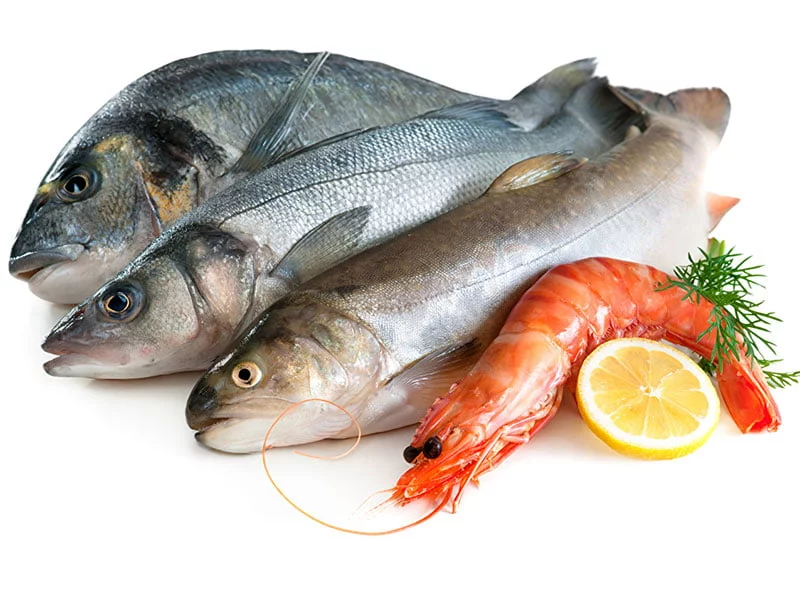
Nutrition facts in 100g fish:
A hundred grams of fish contains 206 calories.
Fat: 12 grams which is 18% of the daily value.
Saturated fat: 2.5 gram
Cholesterol: 63 mg and 21% of daily need
Sodium: 61 mg which is 2% of daily intake.
Potassium: 384 mg that is 10% of the regular requirement.
Carbohydrate: 0 gram
Protein: 22gram and 44% of the daily value.
Vitamin C: 6% of adults’ routine intake
Vitamin B-6: 30% of the daily standard
Cobalamin: 46% of the daily esteem
Magnesium: 7% of one’s everyday requirements.
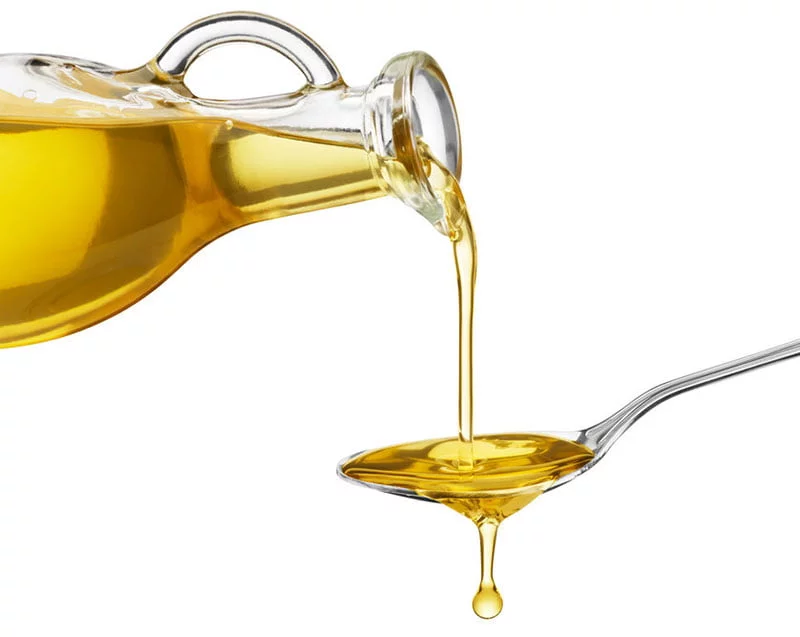
Does fish oil make you gain weight?
Fish oil is mostly recommended for losing weight. But the excess taking of fish oil can turn the result upside down. Fish oil is an incredible source of high protein and healthy fats to gain weight.
Fish oil is rich in protein and calories that help in building muscle. People also take fish oil supplements to put on weight. 100 g fish oil has 902 calories in total. Also, it contains 100 grams of fat and 485 mg of cholesterol. In short, these amounts are good enough to put weight on.

Can fish oil help you lose weight?
Fish oil helps to lose weight following a disciplined diet, healthy lifestyle, workouts in the long run. Eating fish is a healthier alternative to many protein-packed foods to stay lean. Fish oil offers omega-3 content that reduces stress and inflammation.
It contributes directly to weight loss. Protein promotes satiety and feels fuller for longer. Thus it ensures fewer calorie intakes further. At the same time, fish oil promotes speedy metabolic function which helps to burn more calories in total. In fine fish oil has all the functions to promote weight loss race.

How much fish one should eat per day?
Eric Rimm, professor of epidemiology and nutrition, ensures that eating fish every day is fine for most people. It is also beneficial for pregnant women to have fish regularly for a baby’s healthy growth.
But regular intake should be avoided as most of the fish provide an amount of mercury which can cause neurological, lungs, and kidney damage. Therefore, one should not consume up to 12 ounces of fish per day.
Then According to the dietary guidelines, American heart association, and other scientific studies, people are recommended to eat fish twice in a week. But experts say consuming seafood more than two to three times a week has health benefits. However eating fish routinely may be less likely to suffer a myocardial arrest, cardiovascular diseases, depression, diabetes, autoimmune diseases, and all.

How does fish oil make you not fat?
These fatty acids lower triglycerides level to 30% and slow down the growth of plaques in the arteries. Also omega-3 fatty acid contains EPA as well as DHA.
A serving of 3 to 5 ounces of fatty fish provides one gram of EPA along with DHA. Fish oil helps make one fuller than a meal. Leptin hormones in fish oil govern appetite by generating the body’s fat cells.
Fish oil controls hunger by sending signals to the hypothalamus hormone. Thus fish oil helps one to not store fat.
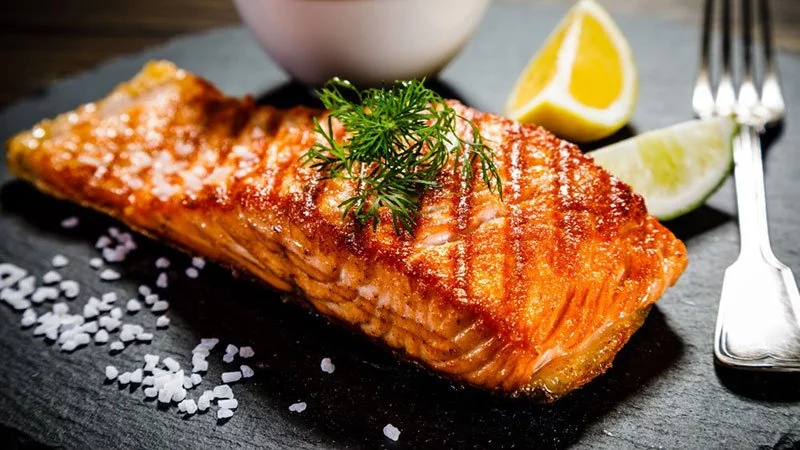
Does salmon make you fat?
Salmon is a great option for losing weight if taken frequently. It has a lesser amount of omega-3 than other sea fish. Still, omega-3 in salmon significantly reduces liver fat, belly fat, and extra body fat in individuals.
Salmon is packed with high-quality protein. A three-ounce of serving provides about 25 grams of protein. Protein helps one to feel fuller for a longer time. Astaxanthin compound suppresses appetite. Salmon also boosts metabolic rate that promotes weight loss.
But salmon can make you fat if taken in excess. Six ounces of Salmon provide 208 calories. Salmon contains 13 grams of fat and 55 mg of cholesterol which are 20% of one’s daily need. Protein in salmon helps build muscle.
People who are chronically underweight can have Salmon to gain weight. Therefore if one takes salmon in more than the given amount then definitely one will gain fat and weight as well.
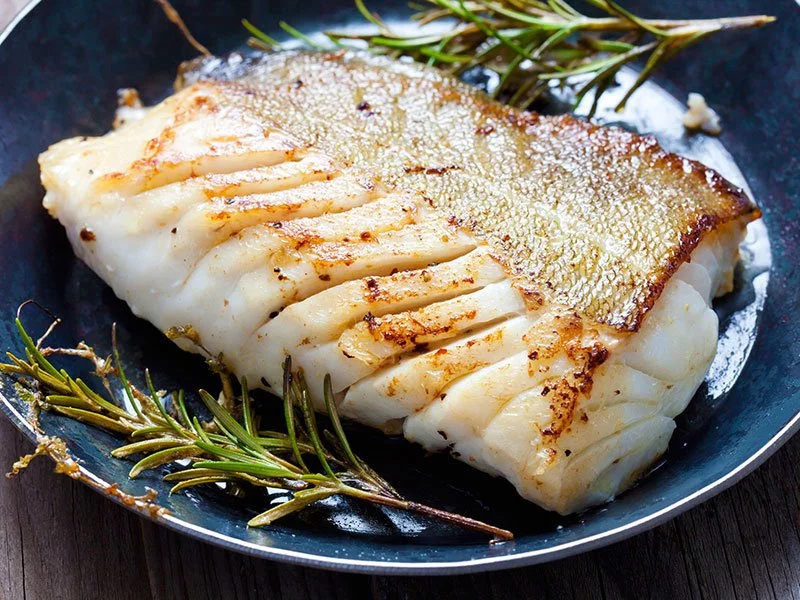
Does fried fish make you fat?
A three-ounce fried fish serving provides 188 calories with 11 grams of fat. Again a single serving of deep-fried fish has around 350 to 400 calories in total. Though fried fish smells and tastes heavenly but it is harmful to health.
Fried fish contains high Trans-fat, acrylamide, and calories that are responsible for adding fat storage in the body. Fried fish doesn’t provide equal health benefits like their non-fried counterparts.
Fried fish changes the whole nutritional profile, absorbs oil and lowers the level of omega 3. Furthermore, high smoking point oil like sunflower oil, peanut oil; olive oil, mustard oil etc. are less fattening.

How to cook fish to lose weight?
There are several healthy ways to cook fish. All fish are rich sources of protein. Some of them are high in fats too. So preparing fish in the right way contributes to losing weight.
Baked fish is a great dish to lose weight as it does not need any extra fat, oil, or liquids. Then grilled, steamed and broiled fish are another awesome dish. Grilled is the method of cooking fish by applying heat from below.
On the other hand, broiling includes applying the heat from above. But one should not grill or broil for a long time at high temperatures as it formats harmful chemicals such as HAs and PAHs.
Slow-cooked dishes like soup, stew, chowders, and poached fish are the best low-fat recipes to enjoy fish and lose weight simultaneously. However, poaching and steaming fish in lower temperatures help preserve the nutrients properly. Canned fish, for instance, tuna, and salmon, sardines, and shellfish, etc. offers fatty acids and also promote weight loss because they contain healthy fats. Hereby per serving should be bound in five-ounce.

How does fish help you lose weight?
Eating lots of fish promotes losing weight successfully. An international research study points out that obese people who ate 5 ounces of fish thrice a week for eight weeks routinely lost 2.6 pounds more than the people who did not add fish into their diet plans.
Fish offers both monounsaturated fat and polyunsaturated fat which are helpful to promote metabolic health. Fish has omega-3 fatty acid which alone holds numerous properties to lose weight. Fish lessen stress hormones called cortisol and adrenaline. These two are responsible for putting on weight. Then fish cuts the triglyceride fats found in the blood.
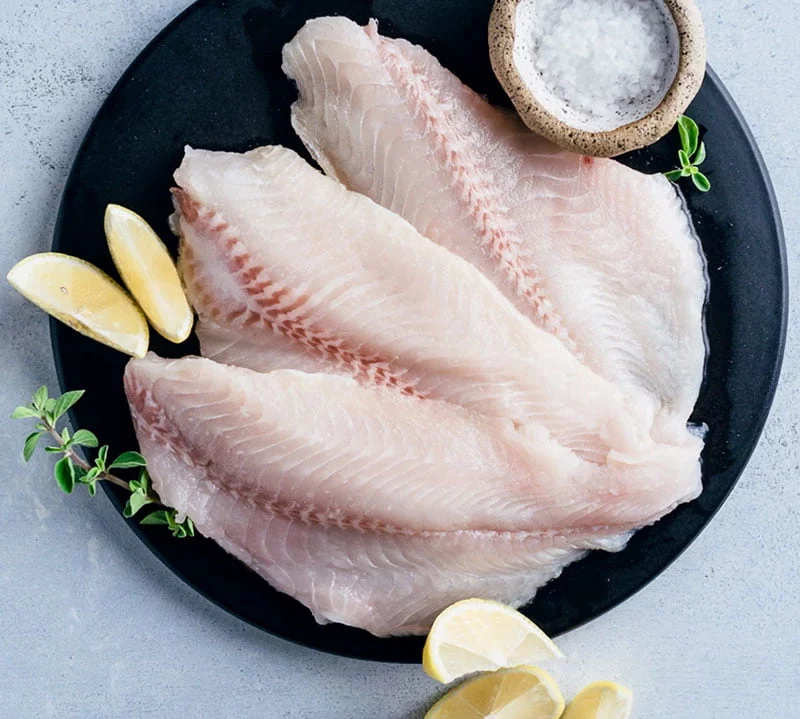
Can tuna make you lose weight?
Eating tuna can be an effective technique to lose extra weight. Tuna increases the production of leptin hormones that helps in suppressing appetite by decreasing the activities of hunger-promoting neurons.
Then omega-3 fatty acid in tuna has anti-inflammatory properties. These counteracting properties help in losing weight because inflammation halts the journey to lose weight.
The rich presence of omega-3 fatty acids in tuna also speeds up the rate of metabolism in the body. Cellular respiration helps in melting bad brown fat of the body. Above all these are some of the specialties of tuna that works wonders in weight loss missions.
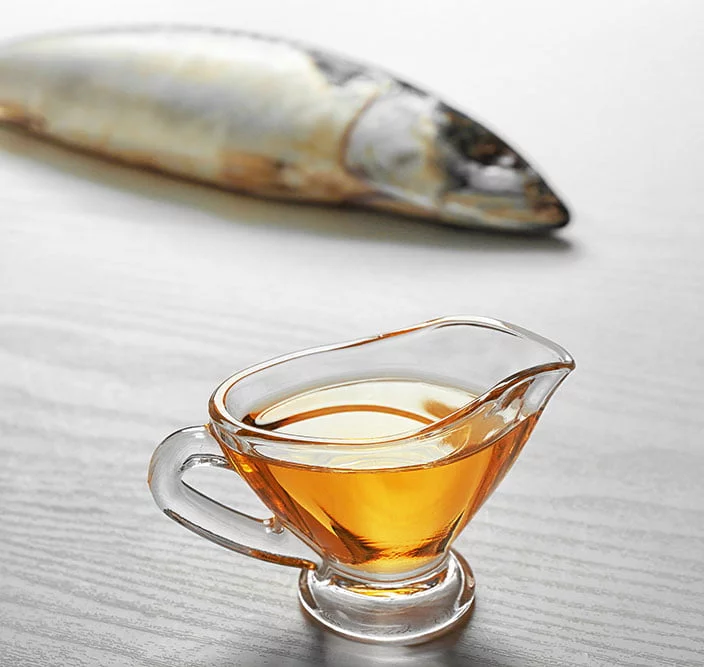
Does cod liver oil make you lose weight?
Kyoto University researchers predict that cod liver oil works more efficiently for weight loss purposes especially for people in their 30s and 40s. Then cod liver oil promotes the growth of hormones to boost metabolic rate.
It also contains omega-3 fatty acid that protects the arteries from cutting fat from arteries. Next omega-3 fatty acid plays a vital role in mental health. It helps fight stress, anxiety, and depression.
A healthy mental state has a great effect on weight loss mechanisms. However, experts suggest consuming only 3000mg cod liver oil a day. And it is advised to have the oil before or after 30 minutes of a heavy meal.

Does omega 3 help with weight loss?
Omega-3 fatty acids help people to lose pounds more easily and effectively in several ways. It is a polyunsaturated fat that boosts weight loss efforts. Fish oil has two long-chained omega-3 fatty acids called EPA and DHA.
They break fat in the small intestine and turn fat into fatty acids and glycerol. Omega 3 is higher calorie count fish oil. One spoonful of omega 3 fish oil offers about 45 calories.
One study shows people who take fish oil are significantly fuller than the non-taker group of fish oil. Hereby, omega-3 increases the fullness hormone and suppresses appetite.
Also, it increases the metabolic rate by around 3.8% if taken frequently. And a speedy metabolism burns more calories. To conclude, omega-3 plays a vital role in the weight loss process but the range of 300 to 3000mg a day should not be crossed.
